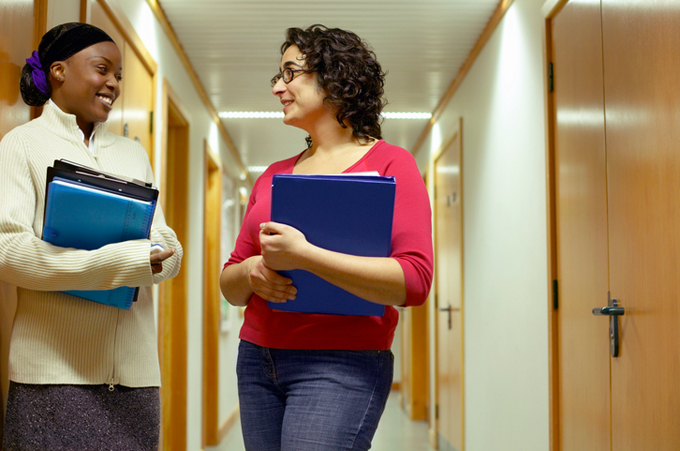
Winter break is always a great time for personal contemplation and reflection.
I want only the best for my students, who are all future teachers. After reflecting on my experiences as a literacy teacher educator, I have been wondering lately if I am unintentionally contributing to teacher burnout by suggesting, even implicitly, and perhaps modeling that educators should give their all to students—often at the expense of their own well-being.
In this blog post, I share three of my personal goals for the new year with the hope that they help me (and perhaps other literacy teacher educators) to be more energized in the new year and inspire future teachers to embrace similar practices.
- Conduct walking office hours. I know getting more exercise in the new year sounds hackneyed, but I do want to prioritize movement this year. How can I be a model of health by just sitting in my office? I am going to finally get my standing desk functioning. I also plan on inviting my students to join me on walks during office hours, something I have been wanting to do for a long time. I can see this being a challenge on snowy days, but I’m going to give it a try.
- Reach out to other professionals. If I have learned anything in my 13 years in education, it is that I do not know everything. One thing I always tell my students is to reach out to other professionals. If you want to know about professional resources, check out a Twitter chat. If a student is facing challenges with reading, seek out the building’s literacy coach or reading specialist. If a student’s mental health is suffering, seek out counselors and school psychologists, professionals trained in these areas. And we must model this, too. Teacher educators are trained very specifically—but not in all areas of a college student’s life. When students’ needs move beyond our training and expertise, we need to model how to reach out to other professionals.
- Unplug. There are times—sometimes very late at night or on the weekends—when I return student or colleague emails. Although there is a part of me that prides myself on being connected and available, I realize that this may not be sending the best message to novice teachers with whom I work. If I suggest that they establish specific time slots during which they will return parent or caregiver emails, then I need to model this. We might not always be finished with everything, but sometimes the computer or cell phone must be put away. I will be honest; this one could be hard.
As I think about what 2019 will bring, I am excited. I want this year to be the best year yet—professionally and personally. I also want to learn from you. What practices do you think we as teacher educators should be modeling to our preservice teachers? What resources do you rely on to help you model what it means to be a successful professional and person? What are your goals to be more energized in the new year?
Kathryn Caprino, PhD, is an assistant professor of pre-K–12 New Literacies at Elizabethtown College. She teaches courses in children’s literature, literacy assessment, and cultural and linguistic diversity. She researches children’s and YA literature, the teaching of writing, and incorporating technology into the literacy classroom. She reviews children’s books on katiereviewsbooks.wordpress.com.